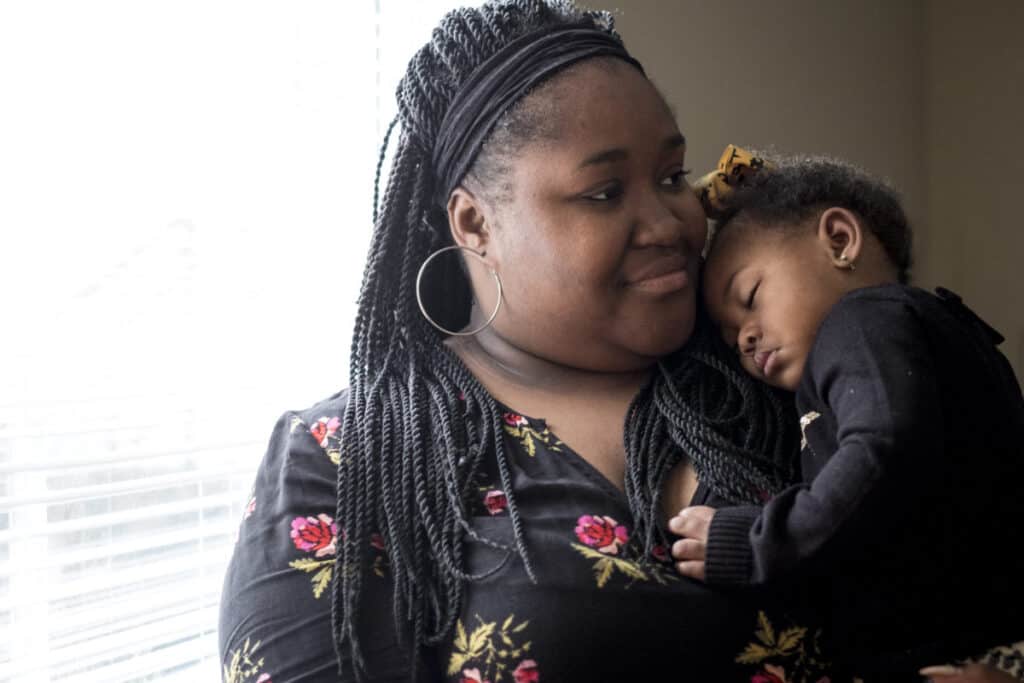The Special Education Due Process Hearing is a legal process you can use as the last resort when you disagree with the school about special education.
This is a formal process and is like a lawsuit. A trained, neutral Court officer will listen to both sides, review the evidence, and then make a decision.
What should happen before I think about a Due Process hearing?
Before you take this step, go through the other steps of Special Education Dispute Resolution: meet with the school again, ask for a facilitated IEP, ask for mediation, and file a complaint with the school district. If you can resolve your conflict through those means, it will be much easier.
Consider getting help from a lawyer. It’s not required, but it is strongly recommended. The special education laws are complicated. A lawyer can help you to prepare a strong case and get what is best for your child. See this section below on getting legal help.
Either you, your lawyer, or the school can start this process.
How to file for a Special Education Due Process Hearing
- Find the Due Process instructions and Hearing Request form. You can download them from your state’s Department of Education website, find the details in the Procedural Safeguards manual, or ask the school principal or IEP team.
- Fill out the Hearing Request Form. Be sure to carefully describe your concerns and what you think the solutions should be. You must list all of your concerns here, because the hearing can only address the issues you list on this form.
- Send the signed written request to the special education director or superintendent of the school district.
- Make a copy of the form for yourself and keep it somewhere safe, like your IEP Binder.
- Send a copy to your state’s educational complaint office.
The request must be made within 1 year of the date that you knew of–-or should have known of-–the action you are complaining about.
~~~~~~~~~~~~~~~~~~~~~~~~~~~~~~~~~~~~~~~~~~~~~~~~~~~~~~~~~~~~~~~~~
Louisiana:
The Hearing process is run by the Louisiana Department of Education Legal Division. The Hearing Officer is called an Administrative Law Judge (ALJ).
Due Process Hearing Instructions. The Hearing Request Form is also on this page.
Send copy of form to:
Louisiana Department of Education, Attn: Legal Division
P. O. Box 94064
Baton Rouge, LA 70804-9064
Louisiana’s Procedural Safeguards (Educational Rights) See pages 15-20 for more on the Hearing and Dispute Resolution process.
Massachusetts:
The Hearing process is run by the Bureau of Special Education Appeals (BSEA), and is also called a BSEA Hearing.
How to file for a Due Process Hearing: Includes link to form and also how to file by mail, fax or in person.
What happens at a BSEA Hearing
~~~~~~~~~~~~~~~~~~~~~~~~~~~~~~~~~~~~~~~~~~~~~~~~~~~~~~~~~~~~~~~~~
What happens after you request a Due Process Hearing?
The office will assign you a Hearing Officer, who will guide you through the process and represent you at the meeting. This officer will bring everyone together to clarify the problem, schedule the hearing, and try to find other resolution options before the hearing.
They may suggest a pre-hearing conference to see if you can all resolve the disagreement before you continue with the hearing. If you have a lawyer, they can come with you.
You may talk about:
- Clarifying the issues
- Areas where you agree and disagree
- Ideas for solutions
- Timing for exchanging information and documents
- Details for the hearing: scheduling, length, and getting an interpreter if needed
If English is not your first language, you have the right to a qualified interpreter. You must let the team know before the meeting. Interpreting services are free for families.
Have the Resolution Meeting with the school
- The school district is required to set up a resolution meeting with you within 15 calendar days of getting your hearing request. This is one step toward reaching an agreement.
- The school district has 30 calendar days after your hearing request, to work with you to reach an agreement before a hearing takes place.
- You are required to be at the resolution meeting unless you and the school district both agree in writing not to have it. You can agree not to have the resolution meeting if you have already reached a solution OR you are continuing the mediation process.
- If the school district is not willing to have a resolution meeting and it has been more than 15 calendar days since they got your request, then you can ask the hearing officer to move forward with the Due Process Hearing.
The resolution meeting may result in a Settlement Agreement, or you will all continue with the hearing.
A Settlement Agreement is a statement of what you agreed to. If you change your mind, you and the school have 3 business days to cancel it. After that, the agreement is official. They can enforce this in court if you end up in a lawsuit.
You should always have an attorney review this agreement. The legal language can be confusing and you want to make sure you don’t waive any of your rights.
How to prepare for the Due Process Hearing
It’s important to be ready for your hearing. This means having your documents ready, and knowing your rights and the different ways you can present your case.
At any due process hearing, you have the right to:
- Bring a lawyer or advocate to advise and represent you.
- Bring your child to the hearing.
- Present evidence like documents and reports.
- Have witnesses come to the hearing and answer questions. You also have the right to issue a subpoena, which is a document that requires them to come.
- See any evidence that will be used at the hearing at least 5 business days ahead of time (If you have not seen it ahead of time, you can ask the hearing officer to not allow it).
- Get a written record of the hearing.
- This is a word-for-word record of everything people said at the hearing.
- You can get it electronically or on paper.
- It is free, but you must ask for it in writing.
Some things you and your lawyer may do:
- Request a Motion: Written request that asks for changes in the hearing, such as the date and location, or asking that the hearing happen over the phone.
- If you request a motion, you must submit a copy to the school. The school has 7 business days to respond. Then, the hearing officer will respond to your request in writing soon afterwards.
- Get a Subpoena: Written court order requiring a person (a witness) to come and testify during the hearing.
- At least 10 days business days before the hearing, you may ask the Education Office to issue a subpoena for anyone you want to speak at the hearing to support your case. This request must be in writing.
- Prepare Exhibits: Documents you want to include in the hearing, such as previous IEPs or evaluation reports.
- At least 5 business days before the hearing, you must get all the exhibits ready. To prepare them, you should:
- Put the exhibits in a 3-ring binder
- Number each document
- Include a table of contents that explains each document
- Follow the instructions from the Education Office on how to submit your exhibits
- At least 5 business days before the hearing, you must get all the exhibits ready. To prepare them, you should:
- Identify Witnesses: People who are responding to questions under oath at the hearing.
- Make a list of all the witnesses who you are planning to have at the hearing.
- Make sure they really know your child so they can accurately talk about your child’s skills, strengths, and abilities.
- Send each witness the time and place so they can be ready.
- Tell the school and hearing officer if there are conflicts with your witnesses’ schedules.
What to expect at the Hearing
It may be slightly different in different courts, but here’s what happens in general:
- The hearing officer will ask if there are any logistical issues. Tell the officer now if there is anything that might affect the flow of the meeting. For example: scheduling conflicts for your witnesses, if you might need a break for medical reasons, if you have any problems with your supporting documents, etc.
- The officer will welcome everyone and read a formal opening statement. The hearing will be recorded.
- The officer will take your documents and put them into the record as official exhibits.
- You and the school will each give opening statements. If you have a lawyer, they will do this for you.
- You will present your witnesses one by one. You or your lawyer will ask them questions. You may also testify yourself. When someone testifies, they will take a formal oath and swear to tell the truth.
- Next, the school or their lawyer will ask your witnesses questions. The hearing officer might also ask questions.
- This process will repeat for the school’s witnesses.
- When all the witnesses are finished, the officer will ask if both sides would like to make a closing statement. Then, the hearing will end.
What happens next?
- They might not make a decision right away. You and the school district will get the decision in the mail, usually about 45 calendar days after the hearing.
- A hearing officer may grant an extension beyond 45 calendar days if either party requests it.
- This decision is final, unless you or the school appeal it and take it to the state or federal court. Otherwise, both you and the school district must follow the decision.
How do they make the decision?
The decision is based on the federal and state special education laws and regulations.
According to federal law, all children have a right to a Free and Appropriate Public Education (FAPE) in the Least Restrictive Environment (LRE).
The hearing officer will consider all of the evidence and the testimony of the witnesses. Based on this, they will decide if your child’s special education rights were violated, or if the school district failed to fulfill its obligations to your child.
They may find that your child did not receive a FAPE if they find that the school’s actions:
- Impeded your child’s right to a FAPE
- Significantly impeded your opportunity to participate in the decision-making process, or
- Deprived your child of educational benefits
If you or the school disagrees with the decision, either of you can appeal it to the state or federal court.
- Get help from a lawyer who specializes in special education law. They can help you file the appeal, prepare your case, and represent you in court.
- File your appeal within 90 days of the hearing officer’s decision.
How to get legal help (even if you can’t afford a lawyer)
You may need to find a lawyer to help you resolve a dispute with the school about special education. This is especially true if you file for a Due Process Hearing.
There are 2 ways to get legal help:
- Get free or low cost legal advice from an advocacy organization.
- Hire a lawyer to represent you in the process.
Legal Advice:
There are many organizations that help families navigate legal problems with special education. They should be able to give you free advice and maybe free or low cost legal help.
Start with the National Disability Rights Network. Look up the legal advocacy organizations in your state and talk to them first.
Hiring a lawyer:
It’s best to find one who has lots of experience with special education laws and regulations.
Choose a lawyer who lists one of these as their specialty:
- Special Education
- Education Law
- Advocacy
Be sure to ask in advance about fees. Fees will vary based on each lawyer’s experience and how complex the case is. The organizations you find through the National Disability Rights Network should be able to help you find a lawyer.
~~~~~~~~~~~~~~~~~~~~~~~~~~~~~~~~~~~~~~~~~~~~~~~~~~~~~~~~~~~~~~~~~
LA
Legal advice:
- The Advocacy Center of LA provides free services. Call their hotline at 800-960-7705.
- The Louisiana Civil Justice Center offers a free legal hotline with brief advice and attorney referrals. Call 800-310-7029, Monday-Friday 9am-4pm.
- Louisiana State Bar Legal Education and Assistance Program provides a search directory by parish that includes legal aid organizations. Scroll to the bottom of the page and select your parish.
- The Southeast Louisiana Legal Services provides legal aid to low-income people. Visit their website to find contact information for an office located near you.
- The courts may also provide some legal assistance but there is no guarantee.
- You can contact the Louisiana Dept. of Education and ask if they can help you find free or low-cost legal assistance.
- Use our Disability Services Finder. Look in the Legal category under Services.
Hiring a lawyer:
- Search for lawyers in your parish through the Disabilities Assistance Network. This list isn’t comprehensive; the people listed here have asked to be included.
- Check with the Louisiana Bar Association’s Referral Service. In New Orleans you can call 504-561-8828; in Baton Rouge you can call 225-344-9926.
- You can also call the Louisiana Bar Association at 1-800-421-5722 for help finding a lawyer in your area.
- Special Needs Alliance: Louisiana Listings.
- Use our Disability Service Finder. Look in the Legal category under Services.
Reminder: We do not endorse any of the lawyers listed through these resources. We are simply providing links to databases for your reference. Legal fees will vary depending on the complexity of your case.
MA
The organizations below can help you find a lawyer. If you are concerned about costs, ask about free legal help.
Children’s Law Center of Massachusetts (Lynn)
Phone: (781) 581-1977; (888) 543-5298
Email: info@clcm.org
Disability Law Center, Inc. (Boston)
Phone: (617) 723-8455, (800) 872-9992, (617) 227-9464 (TTY), (800) 381-0577 (TTY)
Email: mail@dlc-ma.org
Greater Boston Legal Services (Boston)
Phone: (617) 371-1234
Massachusetts Advocates for Children (Boston)
Phone: (617)-357-8431 ext. 3224
Special Needs Advocacy Network, Inc. (North Attleboro)
Phone: (508) 655-7999, 617-388-3638
Email: info@spanmass.org
The Bureau of Special Education Appeals (BSEA) also has information on finding legal help.
~~~~~~~~~~~~~~~~~~~~~~~~~~~~~~~~~~~~~~~~~~~~~~~~~~~~~~~~~~~~~~~~~
As you can see, the Special Education Due Process Hearing is a pretty complicated process. Clearly, it’s best if you can avoid it by using the other forms of Dispute Resolution. But if you need to take this step, follow these guidelines and get good support from a lawyer. Your child’s needs are important, and worth advocating for!
Learn More:
- Conflict resolution in special education: solving disagreements with the school
- Know your rights – What is IDEA?
- How to advocate for your child with a disability…and get results
More about the Special Education Due Process Hearing



